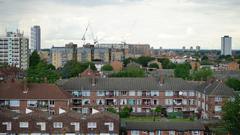Housing associations give vital help to many of society’s most vulnerable members but sometimes have to harden their hearts and take firm action against tenants who engage in antisocial behaviour. In one case, however, an accused sheltered housing tenant saw off claims that he had breached the terms of his lease.
 The pensioner, who held a 99-year lease of his home on an estate which was reserved for vulnerable and elderly residents, was stricken by meningitis soon after he moved in. When he emerged from a three-month coma, he was entirely deaf and had severe mobility difficulties. He had since been the subject of numerous allegations of antisocial behaviour, ranging from an assault on another resident to use of racist language and making threats of extreme violence.
The pensioner, who held a 99-year lease of his home on an estate which was reserved for vulnerable and elderly residents, was stricken by meningitis soon after he moved in. When he emerged from a three-month coma, he was entirely deaf and had severe mobility difficulties. He had since been the subject of numerous allegations of antisocial behaviour, ranging from an assault on another resident to use of racist language and making threats of extreme violence.
His landlord, a charitable community benefit society and housing association, applied to the First-tier Tribunal (FTT) for declarations that he had breached covenants in his lease which, amongst other things, forbade him from causing nuisance or annoyance to its staff or other residents. Had those declarations been granted, it would have been open to the landlord to seek forfeiture of the pensioner’s lease. However, he strongly denied that that he had done anything wrong.
In rejecting the application, the FTT noted that the burden of proving the allegations against him fell squarely upon the landlord. It found that some of them were without foundation and others had not been substantiated by evidence. In some cases, the landlord had waived its right to rely on incidents which potentially amounted to breaches of covenant by taking no action at the time. There were, the FTT found, some incidents in which more consideration should have been given to the pensioner’s disability. It emphasised, however, that its decision did not mean that his conduct had been beyond reproach.



